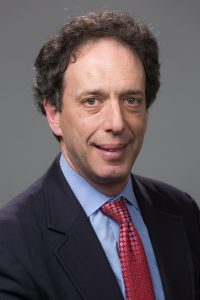
David Schanzer is a Professor of the Practice at the Sanford School of Public Policy and Director of the Triangle Center on Terrorism and Homeland Security at Duke University. In this capacity, he teaches, researches, and writes about counterterrorism policy and law, homeland security, and political violence (both domestic and international). He currently writes a newsletter about threats to democracy called Perilous Times on Substack. Before coming to Duke in 2005, Schanzer served as Minority Staff Director for the U.S. House of Representatives Committee on Homeland Security, Legislative Director for Senator Jean Carnahan, Special Counsel for the General Counsel of the Department of Defense, and Counsel to Senators Joe Biden, Jr. and William S. Cohen. He previously served as a trial attorney in the U.S. Department of Justice, law clerk to the Honorable Norma Shapiro (E.D. Pa.), and law clerk in the Office of the Solicitor General of the United States. Schanzer is a graduate of Harvard College (1985) and Harvard Law School (1989) and was an editor of the Harvard Law Review.

Asher Hildebrand is an Associate Professor of the Practice. Asher teaches core courses on politics and policy analysis in the Sanford School’s Master of Public Policy program. He also leads seminars on legislative advocacy and current threats to American democracy. His academic interests include American politics, legislative institutions, civic participation and advocacy, democracy reform, and U.S. foreign policy. Prior to joining the Sanford faculty, Asher served for nearly 15 years in Congress and on political campaigns, holding senior leadership roles as Chief of Staff to U.S. Representative David Price (D-NC) and as Director of Policy and Research for President Barack Obama’s 2012 campaign in North Carolina. He has also worked for the International Foundation for Electoral Systems in Beirut, Lebanon, and for two foreign policy think tanks in Washington, DC. Asher holds an M.P.A. from the Princeton School of Public and International Affairs and a B.A. from UNC-Chapel Hill. He previously held appointments as an adjunct faculty member at the Sanford School and in the Department of Public Policy at UNC-Chapel Hill. He lives with his wife Blakely and sons Rowan and Henry in Durham, where he serves on the boards of various local and statewide organizations.

Deondra Rose is the Kevin D. Gorter Associate Professor of Public Policy and Associate Professor of Political Science and History at Duke University’s Sanford School of Public Policy. She is also the Director of Polis: Center for Politics at Duke University and Co-director of the North Carolina Scholars Strategy Network (SSN). Her research focuses on U.S. higher education policy, political behavior, American political development, and the politics of inequality. A summa cum laude, Phi Beta Kappa graduate of the University of Georgia, Rose received her M.A. and Ph.D. in Government from Cornell University, with a specialization in American Politics and public policy. Before entering academia, Deondra worked in Georgia and Minnesota politics.

Kristin Goss is a Professor at the Sanford School of Public Policy. She focuses on why people do (or don’t) participate in political life and how their engagement affects public policymaking. Her current research projects focus on the role of philanthropic billionaires in policy debates and on the evolution of gun-related advocacy over the past decade. Professor Goss directs the “Duke in DC” program, which provides select undergraduates with an immersive experience combining work experience and policy-oriented seminars. In 2017, she was inducted into the Bass Society of Fellows. At Duke, she is affiliated with the Center for Strategic Philanthropy and Civil Society, the Center for the Study of Philanthropy and Voluntarism, the Hart Leadership Program, and the Duke Center for Firearms Law. Before her appointment at Duke, Professor Goss taught American politics courses at Georgetown University and served as a consultant for the Corporation for National and Community Service. Her Duke master’s thesis explored the challenges facing voluntary associations seeking to stop the epidemic of gun violence in Washington, D.C., in the 1990s.
